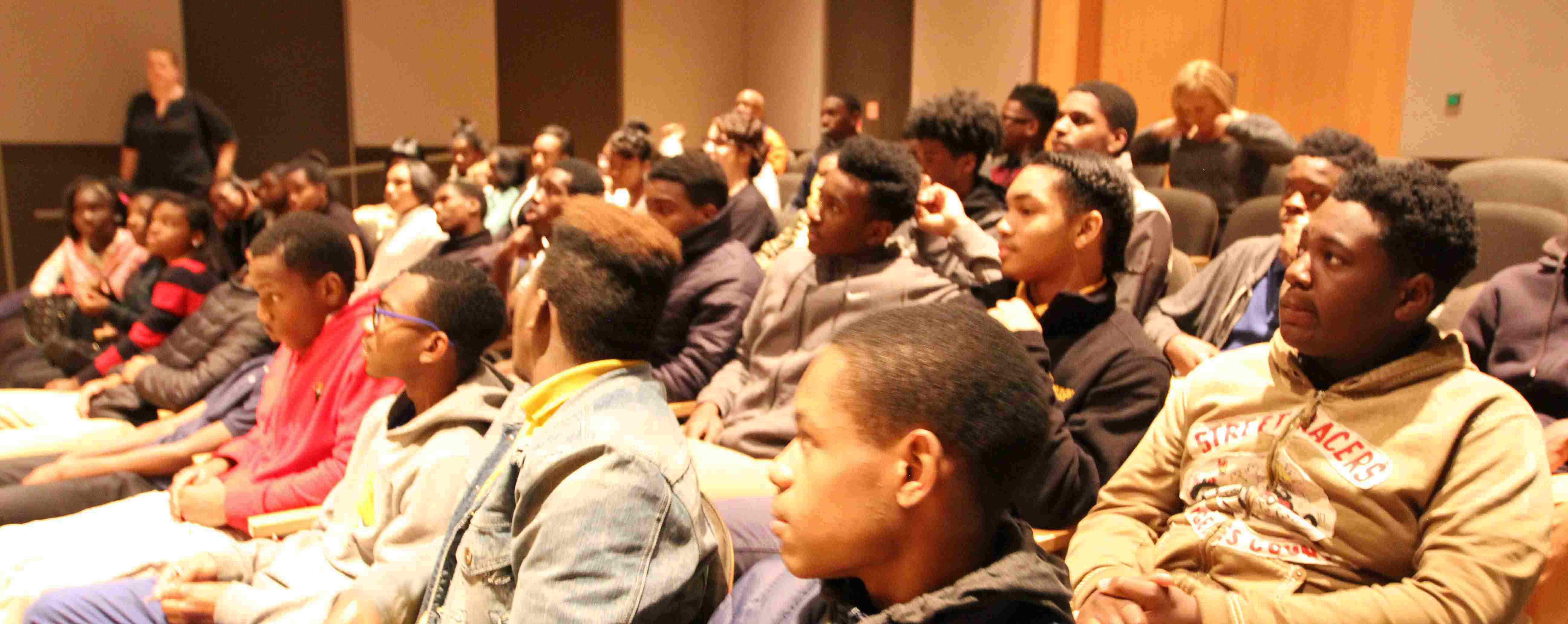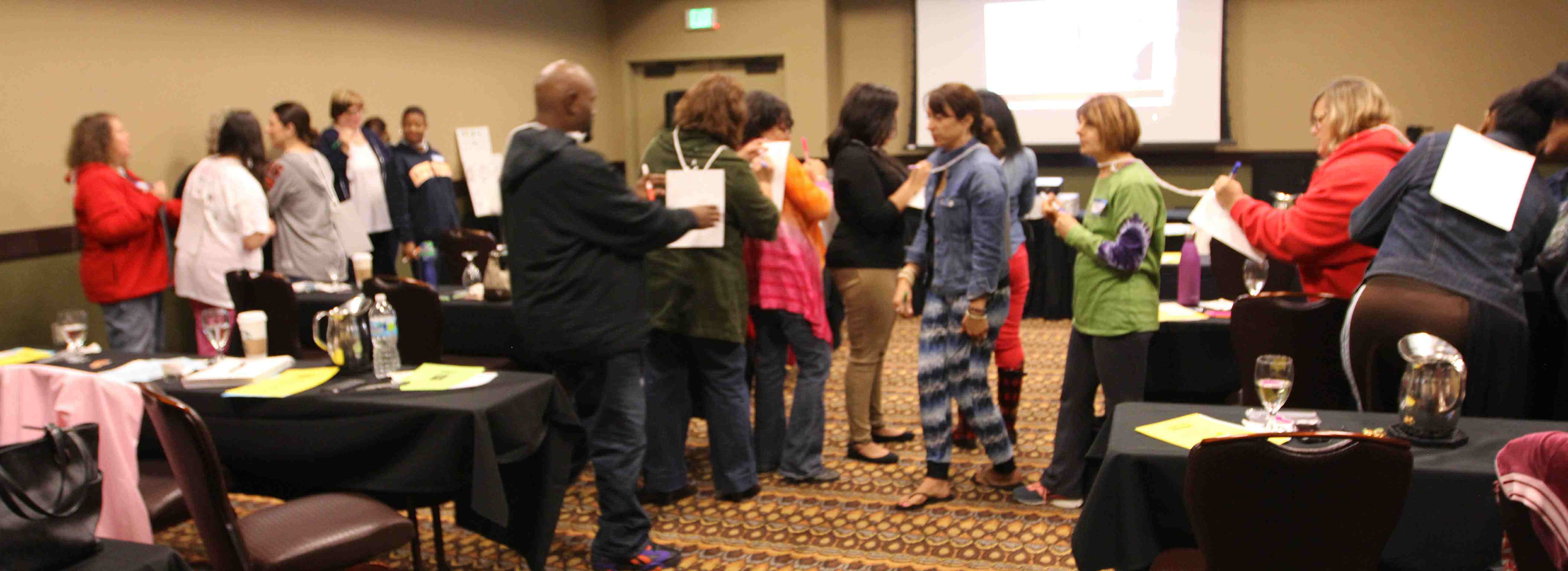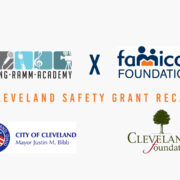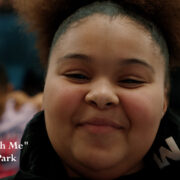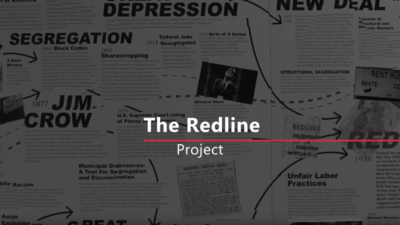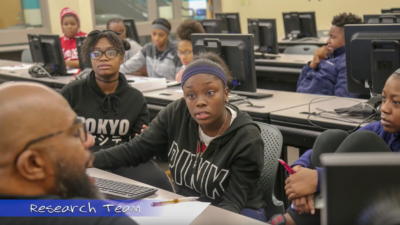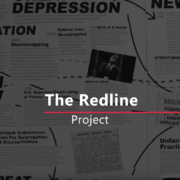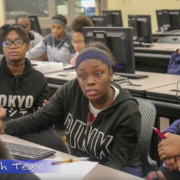Social Emotional Learning Projects
Social Emotional Learning Projects takes a non-traditional approach to learning, through the use of project-based learning as the engine using multimedia as the fuel. Reading RAMM professionals have proven to improve school culture and academics utilizing a holistic student and teacher focused SEL approach to improve conditions for learning.
Student Focused Programming
A New Me Teen Summit introduces participants to the five core competencies of Social Emotional Learning: Self Awareness, Social Awareness, Self Management, Relationship Skills and Responsible Decision Making. Participants are divided into core focused breakout sessions designed, according to school pre-assessments, utilizing (but not limited to) multi-media, interactive engagement, role play, Social Emotional Learning and Conditions For Learning curriculum.
Cost: (Contingent upon school size, facilitators and multi-media needs)
Time: Half Day – Full Day
A New Me Assembly introduces participants to the five core competencies of Social Emotional Learning: Self Awareness, Social Awareness, Self Management, Relationship Skills and Responsible Decision Making. With embedded, student-focused multi-media and engaging facilitators, participants take away relatable concepts they can be used every day in school and the community.
Cost: (Contingent upon school size, facilitators and multi-media needs) Time: 45 minutes – 1.5 hours
The Bully X Project Assembly introduces participants to the role players involved in bullying, the six forms of bullying and what should I do’s if I’m bullied or if I see bullying? Facilitators will advise participants of school wide activities that were successful in other schools. We have several relatable multi-media anti-bullying projects that can be showcased during the assembly.
Cost: (Contingent upon school size, facilitators and multi-media needs) Time: 45 minutes – 1.5 hours
The Bully X Project and Workshops introduces participants to the role players involved in bullying, the six forms of bullying and what should I do’s if I’m bullied or if I see bullying? Facilitators will advise participants of school wide anti-bullying activities that were successful in other schools.
Participants are divided into core focused breakout sessions: Role Players, The Six Kinds of Bullying, Let’s Make the change activities and What Should I Do? Participants will be engaged utilizing (but not limited to) multi-media, interactive engagement, role play, Social Emotional Learning and Conditions For Learning curriculum.
Cost: (Contingent upon school size, facilitators and multi-media needs)
Teacher Focused Programming
“Untapped Talent: Motivating Underperforming Youth”
Today’s youth are experiencing high level of issues and stress due to poverty, substance abuse, mental illness, crime, violence, abuse, and trauma. Such issues manifest themselves in disengagement in the academic setting, loss of motivation and self-esteem, and disruptive and risky behavior, that, when left unaddressed creates additional problems in early adulthood. “Untapped Talent” will examine research and interventions surrounding motivational interviewing and ways to incorporate in a school setting.
Participants will:
Examine and raise awareness of the critical role of teachers in promoting the academic development as well as the social and emotional protection of children and youth
Identify the reasons students resist investing in your classroom.
Learn how to embed social emotional learning into daily curriculum
Learn strategies to help engage youth using intrinsic and extrinsic motivational tools.
Show students the value of learning on their own terms.
Demonstrate to students how to invest in their learning and in your classroom.
Cost: (Contingent upon school size, facilitators and multi-media needs)
Time: Half Day – Full Day
What’s in My Bookbag? is an out of the box look at the difficulties our children bring to school with them on a daily basis. This workshop seeks to address the impact that homelessness, dysfunctional families, poverty, loss of loved ones, lack of affection and attention has on a child’s behavior in the classroom. With the aid of Multimedia, real life scenarios, large and small group discussion, participants are challenged to change their perspective and see life through the eyes of their most difficult students.
Participants will:
Develop Social Awareness by taking on the perspective of their students, exhibit empathy, respect and appreciate for students from a diverse range of cultural settings.
Engage in Responsible Decision Making by identifying, analyzing and solving real life student problem scenarios.
Strengthen Relationships with their colleagues by communicating and working cooperatively in their small groups to resolve conflict.
Cost: (Contingent upon school size, facilitators and multi-media needs)
Time: Half Day – Full Day
—————————————————————————————————————————————
Negative Self Talk vs. Positive Self Talk “Finding Motivation Through Self-Talk” There’s a little train of thought that runs constantly through our minds. From the time we get up in the morning until the time we lay down at night we are constantly processing thoughts about ourselves and the world around us. But what happens when that train runs off the track and takes a turn into Negative Land. When our thoughts are derailed in negativity we tend to see a drop in our motivation and ability to get things done. However just like in the story The Little Engine That Could, all it takes is a few positive powerful words like “I think I can” to get your motivation back on track.
Multimedia, group discussions and interactive activities are used to exhibit the effectiveness of Self Talk. Participants will discover how using Positive Self Talk can improve their ability to recognize their strengths, increase their motivation and accomplish their goals in working with students.
Participants will increase their skills in 5 areas:
Identifying Emotions: Being aware of one’s emotional reactions to situations and analyzing the effect, impact and relevance on a situational basis
Accurate Self Perception: Being aware of one’s self, abilities, weaknesses, wants, needs and existence beyond social and environmental influences.
Recognizing Strengths: Being aware of and identifying what one is strong or effective at accomplishing.
Sense of Self Confidence: The knowledge or perception of strength and value of one’s self.
Self Efficacy: Having the ability/power to make one’s own relevant and productive decisions.
Cost: (Contingent upon school size, facilitators and multi-media needs)
Contact: Edward “DJ Phatty” Banks at 216.798.5872 or readingramm@gmail.com for more information.


